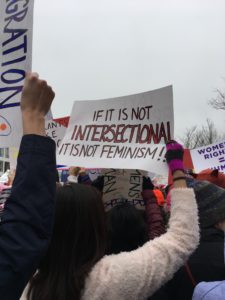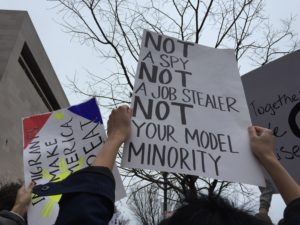My Dear Readers,
Today we have the honor of listening La Thao, a Hmong American woman born and raised in the Midwest and a sleep-deprived minister, thinker and creator.
To my Hmong Christian family,
We need to talk about racism and our complicity when it comes to violence toward marginalized communities, particularly in the Black community. I won’t quote a Bible verse to tell you what I’m going to say. I definitely will not quote a popular, White American pastor. Do I really need all of that just to ask for your compassion?
Last week when we discovered that a Hmong American police officer, Tou Thao, was involved in the death of George Floyd in Minneapolis, the Hmong community was pushed into the conversation of racism, this time as oppressors. We were called to confront the anti-Blackness in us and seek justice for George while others were afraid of backlash toward the local Hmong community and others defended Tou Thao. As I watched Hmong Americans become divided over the death of another Black man by police brutality, I am reminded of the ways we are more connected than we think to people beyond the Hmong community.
Years ago a friend gave me a new word to describe one quality of the Hmong people after listening to me share about our culture. The word is “interconnected”. Interconnected is about having multiple links or connections between multiple parts. It is more complex than “connected”. It’s a word that has stuck with me and a word that I believe describes one of the most beautiful things about us. We want to know each other and how we’re related. We all probably heard someone joke about how all Hmong people are related to each other. When we meet another Hmong person, we’re prepared to answer questions about who our parents are and which city we reside in. We do this so we can find out how we are related and to honor each other by properly using the right title to address each other. Are you my aunt, uncle, cousin, nephew, or niece?
For the younger generation who are unfamiliar with parents, we make connections differently. When I meet another Hmong person, I tend to ask where they’re from and whether they know someone I know from their hometown, church, school, clan, etc. I feel closer to someone because we have mutual friends. I work with college students and I realized one day that a student I worked with is the niece of my cousin’s wife therefore, making me her aunt. Suddenly this student wasn’t just a student that I worked with. She was family. For others, this might seem like strange behavior. Asking about family is too invasive, especially personal details like names. For us, this is normal. This is our way of hospitality and to make each other feel seen, and I think this is beautiful.
What is beautiful is also broken. We are so interconnected to each other that it keeps us from seeing our relations to people beyond the Hmong community. With the recent events, we are not connected to it simply because one of the officers involved in the killing of George Floyd is Hmong. If that is true, then we wouldn’t have all these divisions about how to support the protests. We have gone so long taking care of our own that we fear our pain will become more invisible if we focus our attention on others. I get it and I feel that tension, but other BIPOC communities are not against us. They are with us. Our experiences are not the same, but connecting our pain with the pain of other BIPOC will help us to see that the ones who are against us are those who support white supremacy and systems of oppression. If we embody who we are as an interconnected community of people who want to be anti-racist, we should be able to look at BIPOC communities and say we understand oppression enough to wish that none of us would ever have to experience it again. We are all connected.
For my Jesus-loving Hmong Christians, our community is even more narrow. Our churches tend to be focused on members than serving the needs of the wider Hmong community. This is why I am not surprised to see Hmong American churches doing business as usual on Sunday mornings while their neighbors are hurting. This is a corporate sin we need to confess and repent. We have a long way to go to understanding the pain of other communities. Let’s do better. Confess and repent our ignorance and anti-blackness. We are capable and should do more than saying one prayer for the Black community as if this is only their problem. We are all connected.
Let’s move on from needing theology and biblical evidence to convince us to be compassionate and to hear the cries of the oppressed. If you can’t bring yourself to protest systems of oppression and racism right now, I understand. Maybe where many of us need to begin is to remember where we come from and protest to God. Cry out that our stories are not heard. Lament that after all these years we’ve lived in the U.S., we are still unknown. Weep that we only know a history of suffering. Protest to God that this is not how it should be. Once we start to lament our own story and receive healing, we could begin to see how our relations extend further than our own people. We are all more connected than we think. I’ll wait for you.
My Dear Readers,
Some of you may have posted a black square on IG or used #BlackOutTuesday as a show of solidarity with the Black community. This week folks also were encouraged by @JessicaWilson.msrd and @BlackAndEmbodied to #AmplifyMelanatedVoices –
- Mute white folks doing social-justice related work.
- Follow BIPOC who are speaking directly from their lived experience
- Share content created by BIPOC. Tag their works.
In the spirit of #AmplifyMelanatedVoices we have the honor of listening to and learning from three Christian Hmong women. If you don’t know anything about the Hmong people, LMGTFY . Remember, you don’t have to limit your learning about the Asian American diaspora to the month of May.

